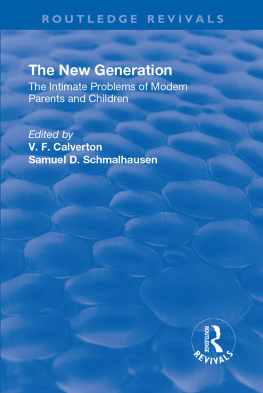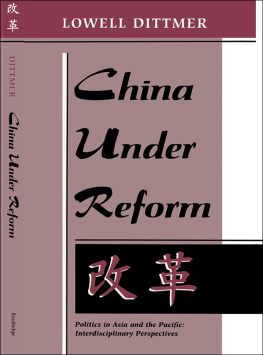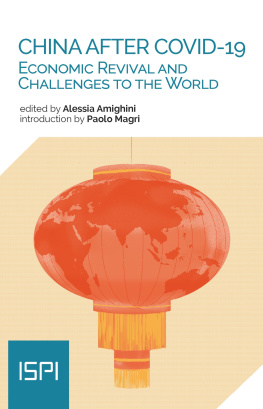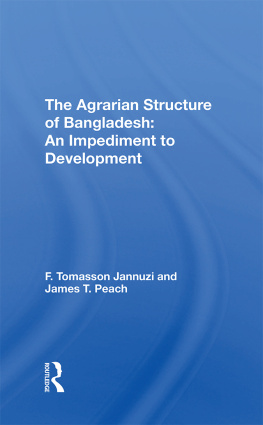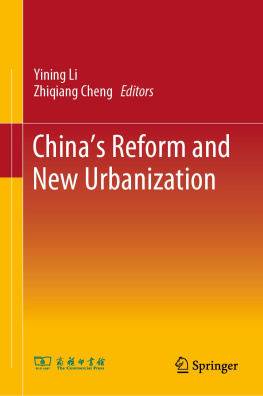First published 1974 by International Arts and Sciences Press, Inc.
Reissued 2018 by Routledge
2 Park Square, Milton Park, Abingdon, Oxon OX14 4RN
711 Third Avenue, New York, NY 10017, USA
Routledge is an imprint of the Taylor & Francis Group, an informa business
Copyright 1974 by Taylor & Francis
No part of this book may be reprinted or reproduced or utilised in any form or by any electronic, mechanical, or other means, now known or hereafter invented, including photocopying and recording, or in any information storage or retrieval system, without permission in writing from the publishers.
Notices
No responsibility is assumed by the publisher for any injury and/or damage to persons or property as a matter of products liability, negligence or otherwise, or from any use of operation of any methods, products, instructions or ideas contained in the material herein.
Practitioners and researchers must always rely on their own experience and knowledge in evaluating and using any information, methods, compounds, or experiments described herein. In using such information or methods they should be mindful of their own safety and the safety of others, including parties for whom they have a professional responsibility.
Product or corporate names may be trademarks or registered trademarks, and are used only for identification and explanation without intent to infringe.
Publishers Note
The publisher has gone to great lengths to ensure the quality of this reprint but points out that some imperfections in the original copies may be apparent.
Disclaimer
The publisher has made every effort to trace copyright holders and welcomes correspondence from those they have been unable to contact.
A Library of Congress record exists under LC control number: 74015391
ISBN 13: 978-1-138-04592-7 (hbk)
ISBN 13: 978-1-138-04591-0 (pbk)
ISBN 13: 978-1-315-17169-2 (ebk)
The question of development finance in underdeveloped countries is ultimately one of the use of the surplus: how can a significant part of that share of national income above a nations culturally determined subsistence requirements be channeled into investment ? In every society an elaborate system of claims on the surplus exists, whether as a material expression of the fealty owed to elders and chiefs in tribal society or the rent, interest, and profits due the owners of capital in capitalist society. These systems of claims are ordinarily so deeply imbedded in the social structure that any effort to redirect the income flows associated with them into socially fruitful investment channels will be severely constrained. Only when the existing claims are eliminated through the revolutionary transformation of society does an opportunity arise for massive redirection of the income flows that compose the surplus into development finance.
Although revolution creates a unique opportunity to increase the share of national income devoted to capital formation, the opportunity is easily missed. New patterns of social organization emerge together with new claims on the surplus; these claims rapidly acquire the sanctions of orthodox practice. At the same time, much of the revolutionary lan is associated with the vision of the redistribution of the surplus in favor of the revolutionary classes, and to restrain such redistribution so as to increase the investment share when revolutionary efforts are crowned with success is a difficult matter. Thus appropriate policy measures must be chosen if an underdeveloped country is to seize the opportunity to initiate or accelerate its modernization which revolution creates.
The experience of China in raising her national savings-investment ratio by taking advantage of the situation created when revolution forced the traditional claimants on the nations economic surplus to relinquish their claims is perhaps the most significant in world history, both in scope and in the clarity of the issues involved. It is this experience of China and the central role played by the land reform in particular that I analyze in detail here. Only a complete tracing of the manner in which the surplus share of national income was diverted to the financing of new investment can clarify the role of the revolution in Chinas economic development. But while this study focuses on China, the methodology and analysis are of more general applicability, bearing directly on central issues in the disciplines of economic history and economic development. Thus it is my hope that besides serving to illuminate the process of historical transformation in China, this study will offer some suggestions to those concerned with historical or contemporary processes of change in other countries.
is devoted entirely to a study of the property share in the rural sector of the traditional economy of China. While the concept of property share depends on the source of income flows and that of surplus on their use, for most purposes the two concepts are interchangeable. I have chosen to conduct the analysis in terms of income shares because the concept lends itself to somewhat more precise definition and because the available data lend themselves more readily to treatment within this framework. Nevertheless, my treatment of the property share ultimately reflects my approach to and concern with the surplus. As it is the size and disposition of the surplus that determines the character and direction of change of any society, the analysis undertaken here of the redirection of Chinas surplus from luxury consumption to investment will serve to clarify the whole process of economic and social change in modern China.
The methodology I have devised for treating this question with regard to China is perfectly general and can be applied with equal validity to the present or historical analysis of the capital share or surplus in other countries. Perhaps the most obvious material for a case study of this sort is provided by the Indian economy, although analysis along these lines is of utmost importance in all of the underdeveloped countries, to clarify both their present situation and the options available to them. Thus the issues I am ultimately concerned with are basic ones in economic development: how can the capital share or surplus present in all underdeveloped countries be estimated and what are the processes by which the traditional patterns of income and spending flows can be altered to increase the share of national income devoted to investment? It is, then, with the dual purpose of analyzing the experience of China at a critical juncture in modern Chinese history and of contributing to the analysis of the role of the surplus in economic development that I have undertaken this study.
I would like to thank Hugh Patrick, Carl Riskin, Raymond Powell, Robert Dernberger, Stephen Resnick, Dwight Perkins, and Ben Stavis for their many useful criticisms. Each of them read the entire manuscript and made substantive suggestions for its improvement; I am especially indebted to Hugh Patrick and Carl Riskin for their close readings and detailed critiques of the text. I would also like to thank Professor John Lossing Buck and Mr. Ardron B. Lewis for their assistance in unravelling some of the mysteries with which the nonparticipant in history is invariably confronted. In particular, I would like to express my appreciation to Professor Shigeru Ishikawa of the Institute of Economic Research, Hitotsubashi University, whose analysis of the work helped to clarify some of the basic conceptual issues. Aboveall, Iwouldliketo express my intellectual debt to Noriko Mizuta Lippit, whose perception had the most influence on the intellectual framework within which this work was conceived.



